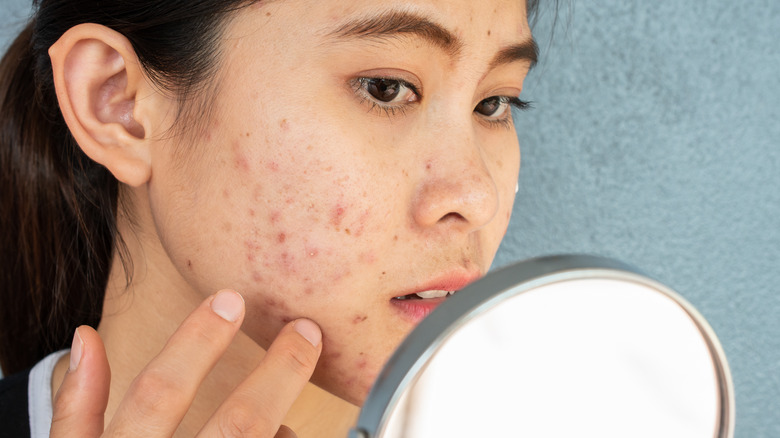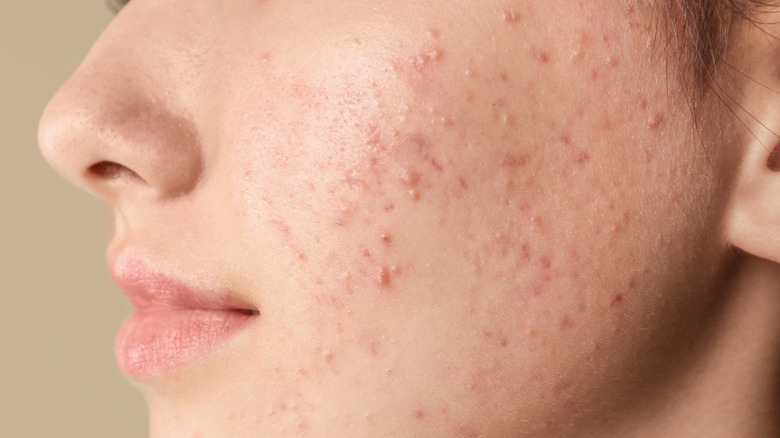Acne Vs. Pimples: What's The Difference?
For many, the end of puberty usually marks the beginning of an era with clear skin. But for some, acne can last well into their mid-to-late 20s and beyond (via the U.K.'s National Health Service – NHS). And no matter how many creams, washes, or gels you buy, pimples continue to appear, regardless of ever-changing skin routines.
Navigating the world of adult acne can be challenging, especially when you can't figure out exactly what your skin needs to stay unclogged and pimple-free. What's even more difficult is figuring out what you're dealing with. Whether it's blackheads or whiteheads, inflammation or just plain painful spots, the world of acne continues to be a mystery (via CBS News).
One of the ever-prevailing questions, though, is exactly what is the difference between acne and pimples? Both terms seem to be used interchangeably by most, especially since acne seems to be a term used to describe more than one pimple. But are they actually the same thing?
Acne is a term used to describe a skin condition, while pimples are actually a symptom
It's actually not as complicated as you might think. The word acne is used as the collective term to diagnose a condition that affects the skin's hair follicles and oil glands, according to Healthline. Pimples, on the other hand, are a symptom, and there are many different types that those with acne will see on their skin.
There are six main types of pimples that you may encounter: blackheads, whiteheads, papules, pustules, nodules, and cysts (via NHS). Blackheads and whiteheads are plugged pores, papules are small red or pink bumps, pustules are another type of papule but with an additional layer of pus, nodules are painful lumps deep under the skin, and cysts are a form of nodule but filled with pus.
Depending on the severity of your acne, you can encounter one or all of these types of pimples. They are most commonly found on the face, but can acne can also appear on the back and chest. Mild cases of acne can be treated with skin creams, lotions, and gels available at pharmacies. For more severe cases, it's recommended that you seek advice from your doctor or a dermatologist who will be able to prescribe treatment suited to the particular form of acne that you are experiencing (via American Academy of Dermatology Association).

